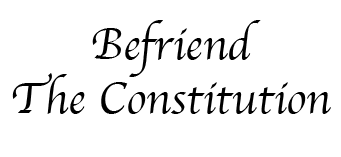The constitutional provisions relating to government and religion were not intended to control the religious rights of people. Rather, they were intended to expand them and eliminate the fear of government intrusion. These provisions were meant to separate religion and government so that religion would be independent. The experiences of Roger Williams and other reformers provided the Founding Fathers of the U.S. with important facts to help them deal with the potential risks of a state religion corrupted by politics. Consequently, they drafted an article in the Bill of Rights to guarantee religious freedom from government as opposed to government freedom from religion.
In fact, the framers of the Constitution probably assumed that religious freedom would establish religion as a watchdog over government, and believed that free churches would inevitably stand and speak against immoral and corrupt legislation. All churches not only have the right to speak out on public moral issues, but they have the solemn obligation to do so. Religion represents society’s conscience, and churches must speak out when government chooses a course that is contrary to the laws of God. To remove the influence of religion from public policy simply because some are uncomfortable with any degree of moral restraint is like the passenger on a sinking ship who removes his life jacket because it is restrictive and uncomfortable.


